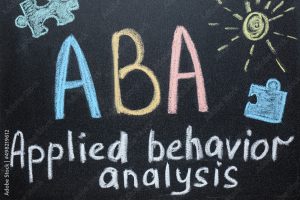Certification
Certification in behavior analysis typically refers to a formal process by which a professional body, such as the BACB or QABA, validates that an individual has met certain predetermined standards of knowledge and competency in the field of behavior analysis. For example, the BCBA and QBA certification is a widely recognized credential in the field. Certification usually requires completing specific educational and training requirements, passing an examination, and adhering to a professional code of ethics. It is important to note that certification is a voluntary process and is not synonymous with a legal permission to practice; it rather denotes a level of professional achievement and recognition (Behavior Analyst Certification Board, 2022).
Licensure
Licensure is a mandatory process regulated by governmental agencies at the state level, which grants permission to individuals to practice a profession within a specific jurisdiction. In many states, behavior analysts must be licensed to legally practice. Licensure requirements typically include specific educational credentials (such as a master’s degree in behavior analysis or a related field), a period of supervised practice, and passing a licensure examination. Licensure also involves ongoing requirements, such as continuing education and adherence to professional standards. The primary goal of licensure is to protect the public by ensuring that practitioners meet minimum standards of competency and ethical practice (Association of Professional Behavior Analysts, 2019).
Registration
Registration generally refers to the process of being placed on an official list after meeting certain criteria. In the context of behavior analysis, registration may be used in some jurisdictions as a form of regulation that is less stringent than licensure. Registered behavior technicians (RBTs), for example, are often registered with a professional body, such as the BACB, indicating that they have met certain minimum training and competency standards. Registration is often seen as a form of self-regulation by the profession and may or may not be legally required for practice, depending on the jurisdiction.
Credentialing
Credentialing is a broad term that encompasses the overall process of establishing the qualifications of licensed professionals and assessing their background and legitimacy. This process often includes the verification of education, training, and experience, and it may be conducted by different types of organizations, such as hospitals, insurance companies, or professional associations. Credentialing is an important process in healthcare and related fields as it helps ensure that practitioners who provide care meet all necessary qualifications and adhere to professional standards (National Association of Credential Evaluation Services, 2020).
While these terms are related and sometimes used interchangeably, they each have distinct meanings in the field of behavior analysis. Certification is a voluntary process indicating that a professional has met certain standards set by a professional body; licensure is a state-regulated requirement to legally practice in a jurisdiction; registration typically involves being listed with a professional body; and credentialing is a broader process of verifying a professional’s qualifications and background. Understanding the distinctions between these terms is crucial for ensuring compliance with various professional regulations and for maintaining the highest standards of practice in behavior analysis.
States That Currently Have Licensure Laws On The Books

State Updates - Behavior Analyst Licensure
Georgia – The state of Georgia has passed a licensure law that allows those qualified to apply to become Georgia Licensed Behavior Analysts. Currently, the Georgia Behavior Analyst Licensing Board is working on writing state regulations and rules to implement the licensure law as written by the legislature. Until the regulations are finalized, it is unclear what the specific qualifications will be to get a license.
The board currently has meetings scheduled on February 15, March 28, April 18, May 16, and June 27. More information can be found here.
North Carolina – On 10/2/2023, the North Carolina General Assembly passed House Bill 125 / SL 2023-129 NC Health & Human Services Workforce Act which added the Qualified Applied Behavior Analysis Credentialing Board as a certifying entity meaning those who are certified as a QBA or QASP-S are now eligible to apply for licensure in the state.
Texas – The Qualified Applied Behavior Analysis Credentialing Board has indicated that they have retained a lobbyist to change the laws in the State of Texas to include QABA as a certifying entity for licensure.
Vermont – The State of Vermont has passed telehealth registration. An Interim Telehealth Registration authorizes a healthcare professional, who is licensed in good standing in another state, to provide licensed services via telehealth to patients or clients located in Vermont after registering with the Vermont Office of Professional Regulation.
A healthcare professional who does not hold an active, conventional Vermont license and who is providing healthcare in Vermont via telehealth must register for an Interim Telehealth Registration. This includes mental health professionals providing telehealth services to patients or clients located in Vermont. Healthcare providers holding only an Interim Telehealth Registration may not provide in-person services to patients or clients located in Vermont.




